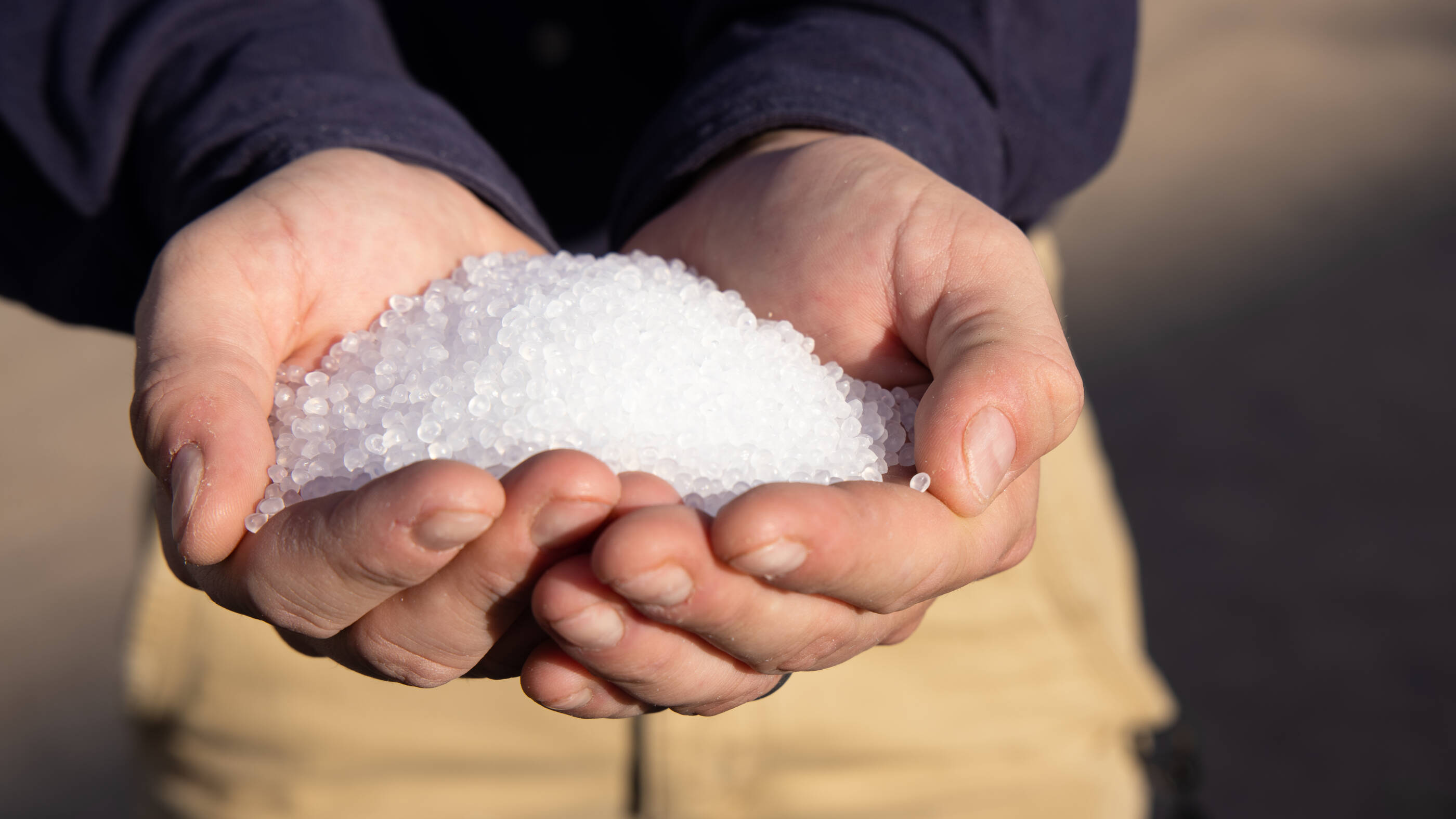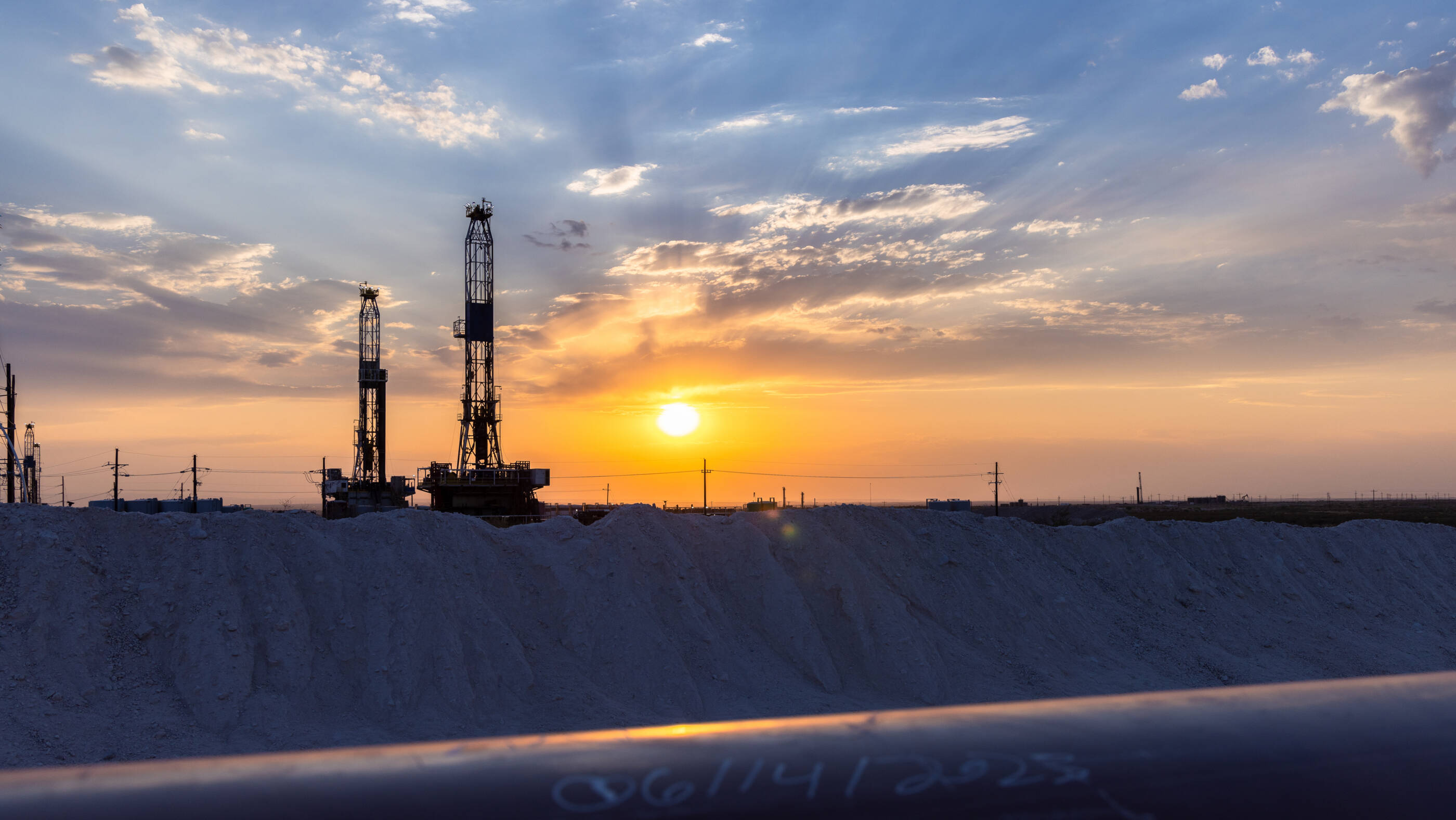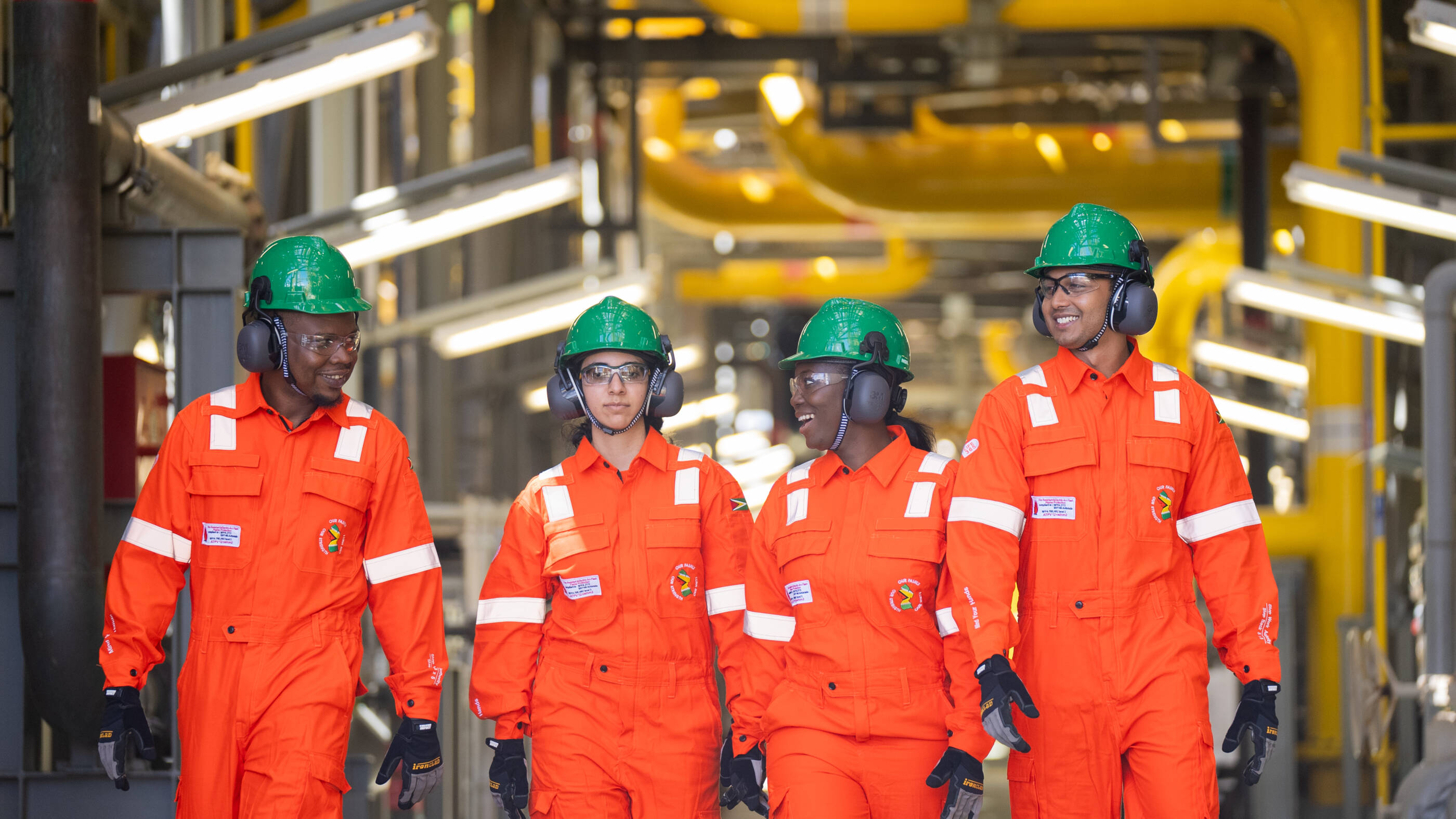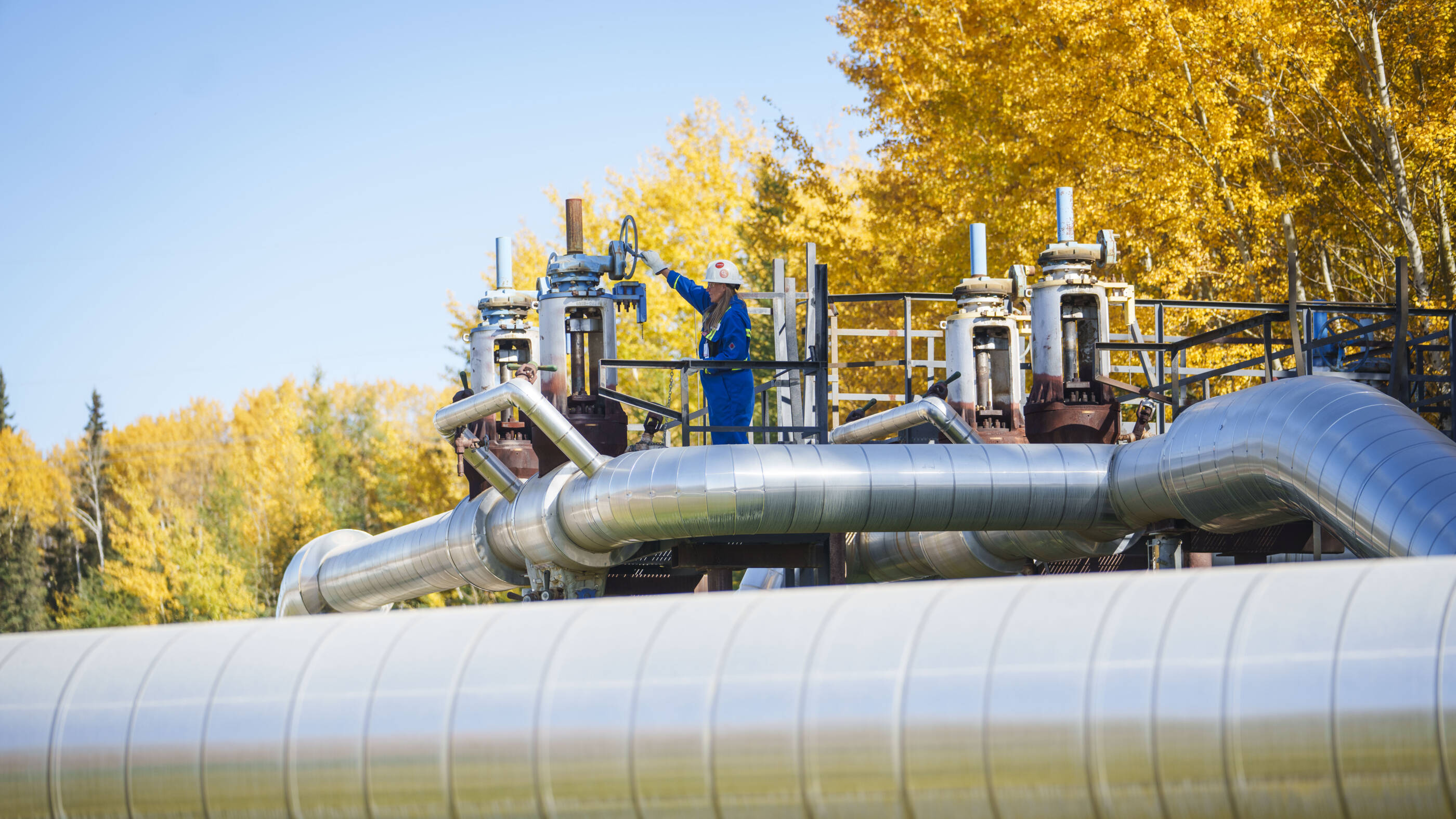selected item
Transforming plastic waste through advanced recycling
Plastics made from petrochemicals are essential to a range of products that enable modern life – from protective medical equipment to construction materials to automobile parts. But some plastics are hard to recycle and end up as plastic waste in the environment.
What’s happening: ExxonMobil believes that advanced recycling is a necessary complement to traditional mechanical recycling to help reduce plastic waste in the environment. The company plans to build its first large-scale plastic waste advanced recycling facility at its Baytown, Texas, complex. Operations are expected to start by the end of 2022. This new facility will be among North America’s largest plastic waste recycling facilities, with an initial planned capacity to recycle 30,000 metric tons of plastic waste per year and the possibility of further expansion.
What is it: Advanced recycling effectively transforms plastic waste into the raw materials used in the process of making virgin-quality plastic and other valuable products. Compared to mechanical recycling processes, there are no evident technical limitations to how many times a plastic product can be put through this process.
Why it matters: Deploying advanced recycling solutions will expand the range of materials that can be recycled and will help maintain the performance of products over multiple recycling loops. This could translate into lower waste for society overall.
Why ExxonMobil: Because the company has integrated manufacturing sites, it can scale up the advanced recycling capacity quickly as residential and industrial collection and sorting systems for plastic waste expand. And ExxonMobil has already obtained certifications through the well-recognized International Sustainability and Carbon Certification Plus (ISCC Plus) system for several of its facilities. This will allow the company to meet customers’ growing demand for certified circular plastics.
What’s the progress to date: The company used a proprietary advanced recycling technology in a plant trial at the Baytown complex and is scaling up operations to supply certified circular polymers by the end of this year. The trial has successfully recycled more than 1,000 metric tons of plastic waste – the equivalent of 200 million grocery bags – and has demonstrated the capability of processing 50 metric tons per day.
What’s the potential: ExxonMobil is developing plans to build approximately 500,000 tons per year of advanced recycling capacity over the next five years, with facilities in construction or under assessment in North America, Europe and Asia. ExxonMobil is also working with others to help find solutions to the global plastic waste challenge and has formed a joint venture with Agilyx Corporation – called Cyclyx International LLC – to help address the need for increased collection and sorting of plastic waste to support the scale-up in advanced recycling.
Here's how it works
Plastic products
Customers can use certified circular plastics to make products like electronics, packaging and car parts
Plastic products deliver benefits that make modern life possible
Today, most plastic is discarded as waste
Sorting of plastic enables recycling
Chemical processes are used to break down difficult-to-recycle plastics to the molecular level to make new raw materials
Raw materials from advanced recycling can be used to produce new plastics and other valuable products
Explore more

Expanding the plastics life cycle
Plastics make modern life possible–and they’re too valuable to waste.3 min read

Integrating sustainability into what we do
How we achieve our strategic priorities is as important as the results. Our directors, officers, and employees are expected to observe the highest standards of integrity.5 min read

Working with suppliers
Our core value of Care doesn’t stop at our door. Our suppliers of goods and services all have a role to play in how we work to Protect Tomorrow. Today.
Enhancing process safety
“Look after each other.”As one of the driving principles behind our core value of Care, it sounds simple.
3 min read

Improving air quality
As we work to meet the world’s needs for energy and products, we maintain a focus on reducing emissions from our operations.2 min read
